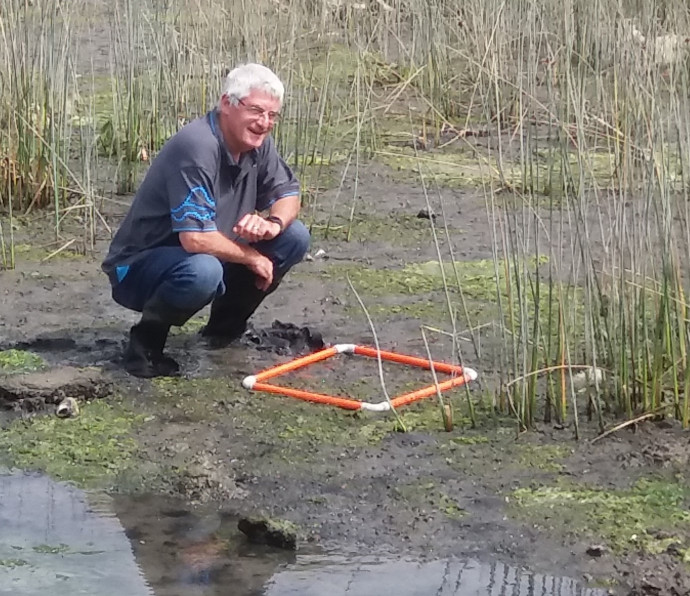Tauranga Intermediate School – John Marsh

2017 | Kaituna water management area sustainability study
School: Tauranga Intermediate School
Host: Bay of Plenty Regional Council
Region: Bay of Plenty
Tauranga Intermediate School believes that science needs to be practical, taught within a meaningful context and linked to nurturing critical, creative, caring and collaborative thinking. Science teaching, resourcing and opportunities for students have been well supported by the school. This is reflected in a strong experimental based programme with a specialist science teacher.
The intention of the school is to refocus science using the science capabilities within inquiry learning. Initially, this will be within the new modern learning classrooms when John, who is our science specialist, will work collaboratively with teachers and students as part of phase two of the Science Teaching Leadership Programme. A team will be established and supported to embed effective and authentic science teaching within an inquiry approach without diluting the science experience and enhancing staff and student understanding of the Nature of Science.
John has had 25 years of teaching experience, with eighteen of these as a science specialist. During this time, he has had the opportunity to teach children from a diverse range of abilities, and socio-economic and cultural backgrounds. He is passionate about providing hands-on science experiences and engaging students in a wide variety of science dialogue. He has undertaken many science leadership roles within the school, locally with teachers from other schools, and was a founding member of NZAPSE.
John has been hosted by Pim DeMonchy, from the Bay of Plenty Regional Council, where he focused on the Kaituna Catchment Area and was involved in two projects. The first project involved “truth testing” of landholders’ management of the waterways passing through their properties, through their fencing, stock management, riparian planting and land management. The second project was centred around the ecosystem monitoring of the Kaituna River re-direction with a focus on the Papahikahawai Island redevelopment. John was involved with the planning of how monitoring occurred , linking with historical data, analysing the data, and presenting the information so that informed decisions could be made by project managers, concerned community groups and individuals. His experience with the Bay of Plenty Regional Council was a total immersion in the “The Nature of Science” and the “Science Capabilities” which has given him a greater understanding of how science processes work in our community.
In addition to these projects John has had the opportunity to attend a lecture on the causes of soil erosion and problem solving remediation works. Training in the use of graphical programmes to understand geological and land use issues, then using them to communicate scientific ideas has also been an integral part of his placement. John was very fortunate to have shared a room with Paora Howe, a Senior Treaty Advisor, where Treaty issues, the role of science in Aotearoa and looking through cultural lenses in education and other aspects of our lives were dissected in detail.
The Science Teaching Leadership Programme has provided John with a professionally transformative experience. He is looking forward to utilising his renewed enthusiasm, skills and ideas back in Tauranga Intermediate School. John would like to thank The Royal Society Te Apārangi for providing this opportunity, Pim deMonchey and the staff at the Bay of Plenty Regional Council at Mt Maunganui. Scientists, from Whakatane, Keith Hamil and Stephen Park were also generous in their time and willingness to share their expertise. He would like to thank them for an awesome experience and making him welcome.
